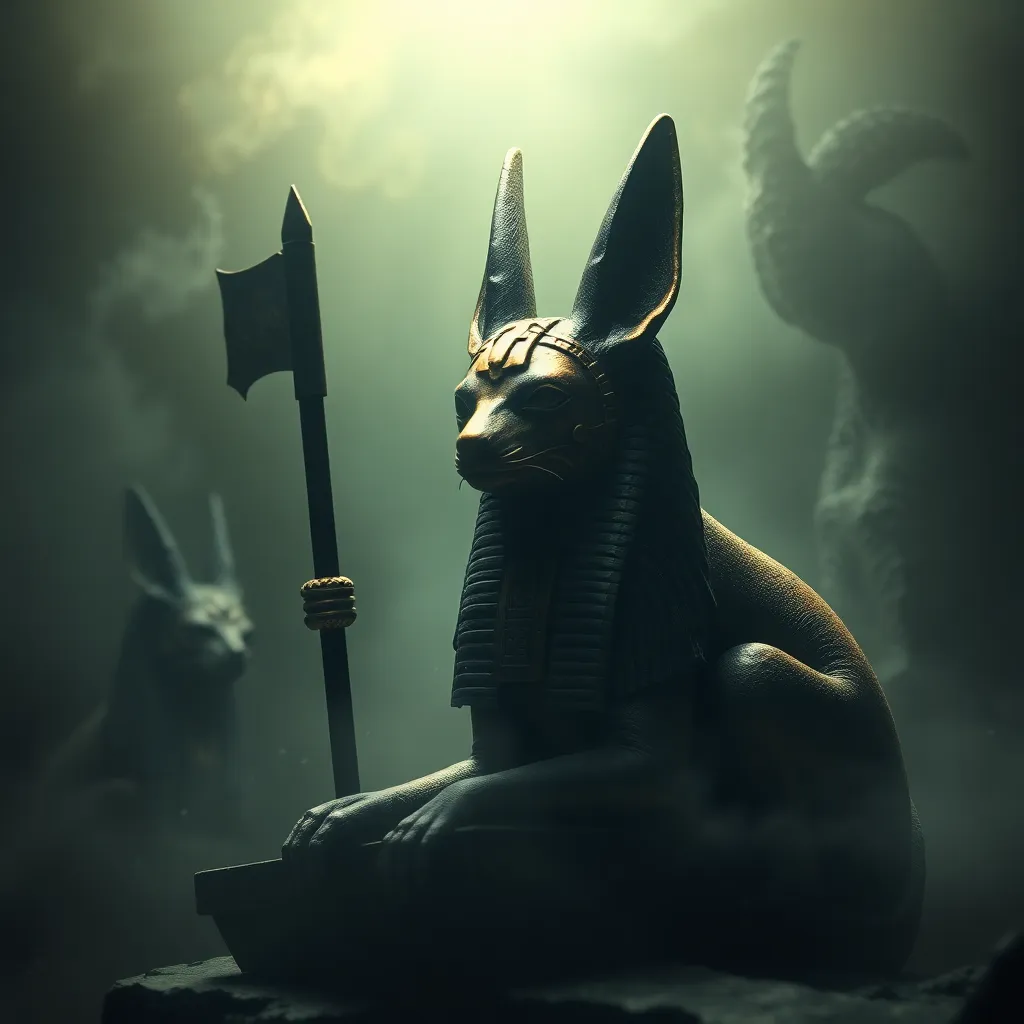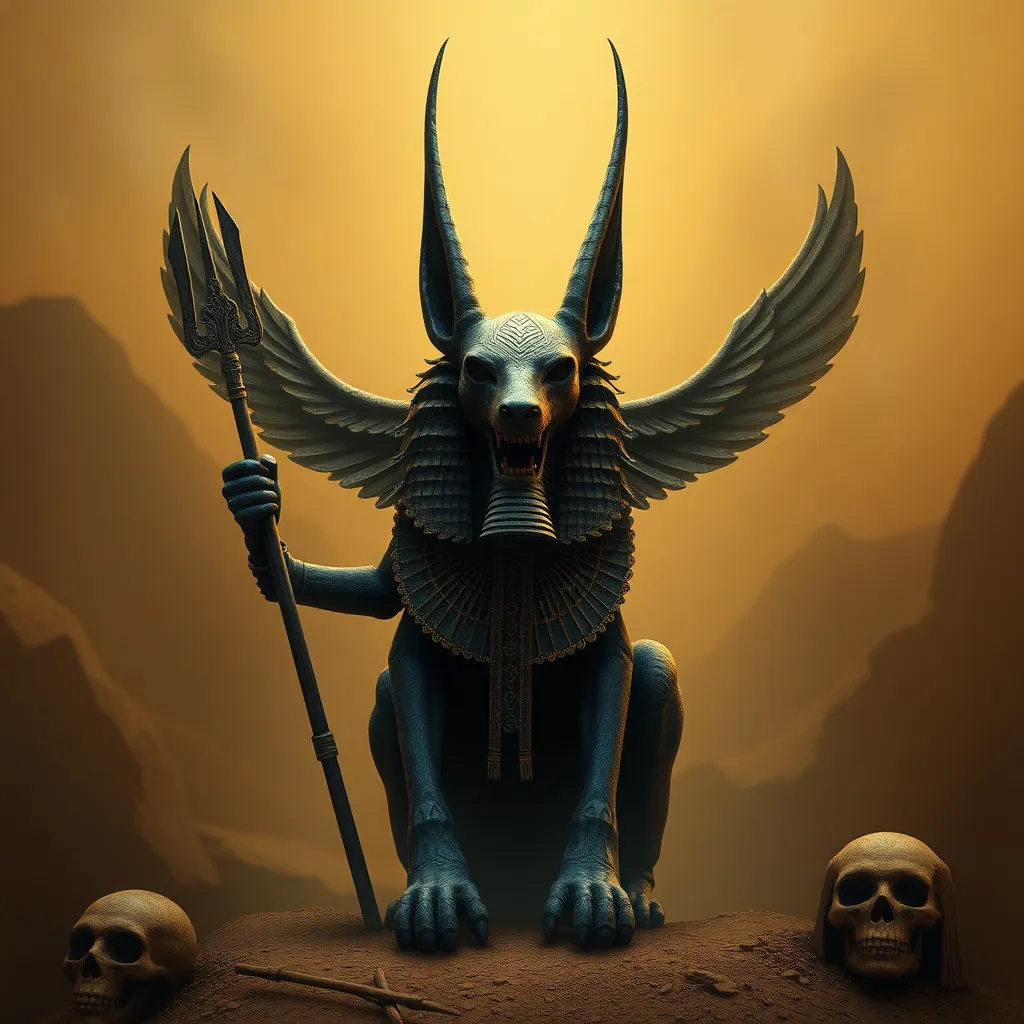
Introduction:
The tale of Anubis and the Lost Kingdom originates from ancient Egypt, a land of pharaohs, pyramids, and a pantheon of gods and goddesses. This is a traditional story, a product of the imaginative minds of people who lived thousands of years ago, a narrative passed down through generations. It is a story told to explain the mysteries of life, death, and the world around them. We approach this legend not as a matter of faith, but as a window into the rich cultural tapestry of ancient Egypt.
Origins and Cultural Background:
The setting for this story is the flourishing civilization of ancient Egypt, a civilization that thrived for millennia along the fertile banks of the Nile River. This era, spanning from approximately 3100 BCE to 30 BCE, saw the rise and fall of dynasties, the construction of colossal monuments, and a complex religious system that permeated every aspect of life. The ancient Egyptians viewed the world as a cyclical journey, where life, death, and rebirth were interconnected. The Nile’s annual flooding, followed by the fertile land it left behind, served as a constant reminder of this cycle. The sun god, Ra, was a central figure, believed to journey through the underworld each night, battling chaos and emerging victorious each dawn. Their world was populated by a myriad of gods and goddesses, each with their own domains, responsibilities, and influence. These deities were not viewed as abstract concepts, but as living beings who interacted with humans, influencing their destinies and the natural world. Temples were built in their honor, filled with priests and rituals designed to appease the gods and maintain cosmic balance. The concept of Ma’at, representing truth, justice, and cosmic order, was paramount, and it was the responsibility of the pharaoh, seen as a divine ruler, to uphold Ma’at and ensure the prosperity of the kingdom. The Egyptians’ belief in the afterlife was strong, and they meticulously prepared their tombs, equipping them with everything they might need in the next world.
Character / Creature Description:
The central figure of this tale is Anubis, the jackal-headed god of the afterlife and mummification. He is often depicted with a sleek, black furred body and the head of a jackal, a creature associated with cemeteries and the desert, reflecting his role as a guardian of the dead. Anubis is not portrayed as a cruel or fearsome figure. Instead, he embodies the solemnity of death and the transition into the afterlife. His jackal head signifies his keen observation and vigilance, ensuring that the deceased are treated with respect and that their hearts are weighed against the feather of Ma’at in the Hall of Judgment. He is often seen in funerary rituals, assisting in the embalming process and guiding the souls of the deceased through the underworld. His presence underscores the importance of honoring the dead and maintaining the balance between life and death. Symbolically, Anubis represents the essential role of ritual, preparation, and guardianship in navigating the perilous journey of the afterlife, a journey believed to be crucial for achieving eternal life.
Main Story / Narrative Retelling:
In the heart of ancient Egypt, beyond the sun-baked sands and the shimmering Nile, lay a kingdom shrouded in mystery and whispered secrets. This was the Lost Kingdom, a realm said to be ruled by Anubis, the jackal-headed god. Legend has it that Anubis, once a powerful and revered deity, held dominion over this hidden realm, a sanctuary for those who had passed from the world of the living.
The Lost Kingdom was not a place of darkness and despair, but a carefully orchestrated haven where souls prepared for their journey into the afterlife. Anubis, with his keen jackal eyes, oversaw the meticulous process of weighing hearts against the feather of Ma’at. He was the guardian of the balance, the judge of souls, ensuring that only those who lived a life of truth and justice could pass through to the blessed fields of the afterlife.

But the idyllic peace of the Lost Kingdom was not destined to last. A shadow began to creep over the land, a creeping corruption of selfishness and betrayal. It started subtly, with whispered doubts and acts of greed. Soon, whispers of resentment grew into open defiance, as some within the kingdom began to question Anubis’s authority and the very tenets of Ma’at.
Leading this rebellion was a powerful sorcerer, a cunning figure driven by ambition and a lust for power. He envied Anubis’s position and saw the Lost Kingdom as a means to his own selfish ends. He gathered followers, promising them riches and eternal life in return for their loyalty, feeding their desire for power. The sorcerer crafted insidious plots and whispered lies, sowing discord among the inhabitants of the kingdom.
The inevitable conflict came in a cataclysmic confrontation. The sorcerer, fueled by his dark magic, challenged Anubis for control of the kingdom. The battle was fierce, a clash between the forces of order and chaos. Anubis, wielding his divine power and armed with his unwavering commitment to justice, fought valiantly. But the sorcerer’s power, fueled by the darkness that had consumed the kingdom, proved overwhelming.
In a final, devastating blow, the sorcerer unleashed a powerful curse, a wave of despair that enveloped the Lost Kingdom. Anubis, weakened and heartbroken by the betrayal, saw his realm crumble. The kingdom, once a sanctuary of hope and preparation, was lost.
Anubis, wounded and defeated, was cast out from his kingdom. He was forced to watch as the sorcerer took control, twisting the sacred rituals and corrupting the souls of the departed. The once-sacred halls became a place of misery and torment. The fall of Anubis and the Lost Kingdom became a cautionary tale, a grim reminder of the destructive nature of unchecked ambition and the fragility of even the most carefully constructed order. The fate of the Lost Kingdom was a warning that even the gods themselves could be humbled by the darkness that resides within the hearts of those who seek power above all else.
Symbolism and Meaning:
The story of Anubis and the Lost Kingdom holds several layers of symbolic meaning. Anubis represents the importance of judgment, fairness, and ritual in the face of death. His role in weighing the heart against the feather of Ma’at reflects the ancient Egyptians’ strong emphasis on morality and living a just life. The Lost Kingdom itself symbolizes the afterlife, a realm that can be either a source of peace and tranquility or a place of suffering, depending on one’s actions in life. The sorcerer represents the forces of evil, corruption, and the dangers of unchecked ambition, highlighting the importance of humility and ethical behavior. The narrative reflects the ancient Egyptians’ deep understanding of human nature, their recognition of the potential for both good and evil, and their profound concern with morality and the consequences of one’s choices, even after death. The story also may have served to reinforce social structures, emphasizing the importance of respecting authority and adhering to the values of the community.
Modern Perspective:
The myth of Anubis and the Lost Kingdom continues to resonate in modern times. Anubis’s image and name are prominent in modern literature, movies, and video games. His presence in popular culture speaks to the enduring fascination with ancient Egypt and its rich mythology. Scholars and cultural studies enthusiasts explore this narrative to understand the beliefs, values, and anxieties of the ancient Egyptians. The story of the fallen kingdom can be interpreted as a reflection of societal anxieties about power, corruption, and the loss of values. It serves as a reminder of the fragility of order and the importance of striving for justice and ethical behavior, even in the face of adversity. The narrative’s themes of judgment, morality, and the afterlife continue to fascinate and inspire, prompting contemplation on the meaning of life and death.
Conclusion:
The tale of Anubis and the Lost Kingdom is a captivating story, a product of human imagination that echoes through the corridors of time. It is a story to be understood and appreciated, not as a divinely revealed truth, but as a rich piece of cultural heritage. We, as Muslims, recognize that all creation, including the myths and legends of ancient civilizations, belongs to Allah, the one true Creator and Sustainer. It is through stories like this that we can appreciate the diversity of human cultures, the power of imagination, and the timeless nature of the human experience. They remind us of our shared capacity for storytelling and the enduring fascination with the mysteries of life, death, and the world around us. These stories are a reminder of the importance of respecting the past, learning from the traditions of others, and understanding the role of stories in shaping human societies.


